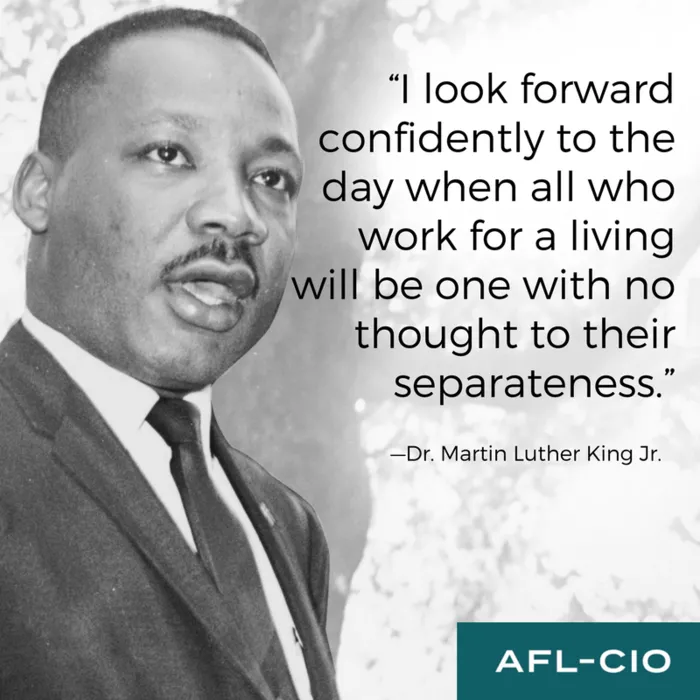'The unions and the NAACP go hand-in-hand'

By BERRY CRAIG
AFT Local 1360
My friend and union brother W.C. Young said his wallet always contained two cards--his union card and his NAACP card.
Mine does, too.
A national labor and civil rights leader from Paducah, Young saw the civil rights and labor movements as natural allies. So does Raoul Cunningham, immediate past president of the Kentucky NAACP.
“The unions and the NAACP go hand-in-hand,” he told me at the 2019 NAACP state convention in Paducah last September. “The NAACP fights for equality. So do the unions.”
Young, who died in 1996 at age 77, spent most of his life in the union movement, retiring in 1987 as Region 10 director of the AFL-CIO’s Committee on Political Education.
Twenty-three years before, Young was in the crowd for Dr. King's historic March on Frankfort. He and Cunningham echoed Dr. King, whose birthday we again commemorate Monday.
“As I have said many times, and believe with all my heart, the coalition that can have the greatest impact in the struggle for human dignity here in America is that of the Negro and the forces of labor, because their fortunes are so closely intertwined,” Dr. King said.
He warned that enemies of racial justice were also enemies of unions: “The labor-hater and labor-baiter is virtually always a twin-headed creature spewing anti-Negro epithets from one mouth and anti-labor propaganda from the other mouth.”
He denounced “right to work” laws for the scam they are: “In our glorious fight for civil rights, we must guard against being fooled by false slogans, such as ‘right to work.’ It is a law to rob us of our civil rights and job rights.
“Its purpose is to destroy labor unions and the freedom of collective bargaining by which unions have improved wages and working conditions of everyone.…Wherever these laws have been passed, wages are lower, job opportunities are fewer, and there are no civil rights. We do not intend to let them do this to us. We demand this fraud be stopped. Our weapon is our vote.”
Dr. King was also a student of labor history. In 1965, the 30th anniversary of the landmark Wagner Act, he pointed out that when the 20th century turned, “women earned approximately 10 cents an hour, and men were fortunate to receive 20 cents an hour. The average work week was 60 to 70 hours.”
He added, “During the ’30s, wages were a secondary issue; to have a job at all was the difference between the agony of starvation and a flicker of life. The nation, now so vigorous, reeled and tottered almost to total collapse. The labor movement was the principal force that transformed misery and despair into hope and progress.
“Out of its bold struggles, economic and social reform gave birth to unemployment insurance, old-age pensions, government relief for the destitute and, above all, new wage levels that meant not mere survival, but a tolerable life. The captains of industry did not lead this transformation; they resisted it until they were overcome. When in the ’30s the wave of union organization crested over our nation, it carried to secure shores not only itself but the whole society.”
Click here to watch listen to Kentucky State AFL-CIO President Bill Londrigan talking about Dr. King’s support for unions and what we do.